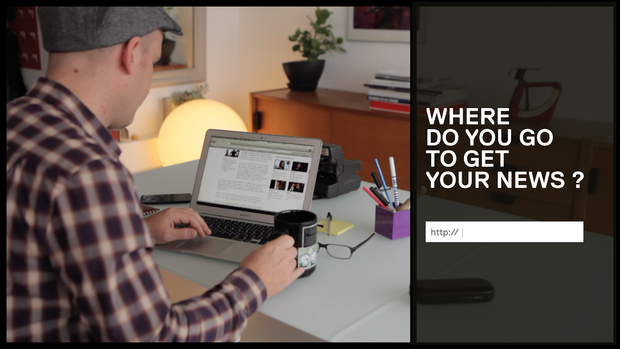Interactive documentary reveals how you're tracked online
You are being tracked.
Right now, websites are following your online moves, learning your habits and tailoring the ads and information you see to fit the mold they've created of you. They know what kind of computer you're on, where you shop and how the weather is outside your door.
We live in a world in which our privacy is constantly being violated -- and we're basically asking for it.
That's the lesson you learn when you dive into "Do Not Track," an interactive online documentary series that debuted at the 2015 Tribeca Film Festival. "Do Not Track" pulls back the digital curtain on how your online life is monitored, manipulated and monetized.
It all comes down to the data trail you unwittingly leave behind as you surf, search, read and write online. "Do Not Track" reveals that trail, and like a black light in a cheap motel room, the results are disturbing.
Director Brett Gaylor used to work for the Mozilla Foundation, which makes the Firefox browser. A few years ago, the self-described "Internet champion" started to feel increasingly uncomfortable about the way third-party sites were collecting, using and selling information about people based on their browsing behavior.
"I was encouraging people to use the Internet my whole career," Gaylor told CBS News. "Then I saw it taking a turn that I wasn't excited about."
He felt compelled to share what he knew with the public, and "Do Not Track" was born.
Quickly after pressing play on the first episode, it becomes clear just how much you reveal about yourself simply by clicking a link. That's because, like pretty much everywhere else on the Web, "Do Not Track" is tracking you.
The documentary collects available data on you, such as your IP address, which identifies your physical location, and what kind of computer you're on -- the same kind of data any site might get, data which you are constantly, unknowingly giving up for public consumption. No simple video, the documentary takes this information and weaves it into the narrative, using innovative browser plug-ins to generate, in real time, images and soundbites that match the data it gets.
Within the first minute, Gaylor's narration and the visuals change depending on who's watching, how and from where. He says, "I know that this is the country you live in," as videos emblematic of the United States flash onscreen. Then, a weather report from your town appears. "I know that it's a nice afternoon," he says, adding, "I know that you're on a Mac."
As you proceed, prompts will ask you what site you visit for your news and where you go when you need a laugh, and it will display a schematic of how those and other sites are tracking your path along the web and connecting the dots between each stop. Enter your email address at the end, and your information will be carried into future episodes, personalizing the experience and spitting your own information back at you. (The site also offers a resource center of encryption tools and data shields to fight this kind of spying.)
The first two episodes explain things like what cookies are and how companies use them to keep tabs on your browsing history; how we "OK" the use of cookies with reckless abandon, but never have the option to say "Not OK;" how we pay for a free Internet with our data; and how advertisers are able to target customers with eerie precision.
And it's not just what you click on, it's also your attention span -- your rate of clicking or how much of a video you're willing to watch -- that can be factored into what companies choose to serve you online. This leads to an increasingly individualized browsing experience, where what you see on the Internet can differ greatly from what someone else might see.
"You'd think that with more data you'd have more truth," said Louis-Richard Tremblay, from the National Film Board's Interactive Studio in Montreal, a partner on the project. But it seems to be just the opposite. This "filter bubble" will be explored in episode six.
The first and secod episodes of the seven-part series are online now. The third goes live on Monday, and Gaylor and his team will roll out a new episode every two weeks after that.
